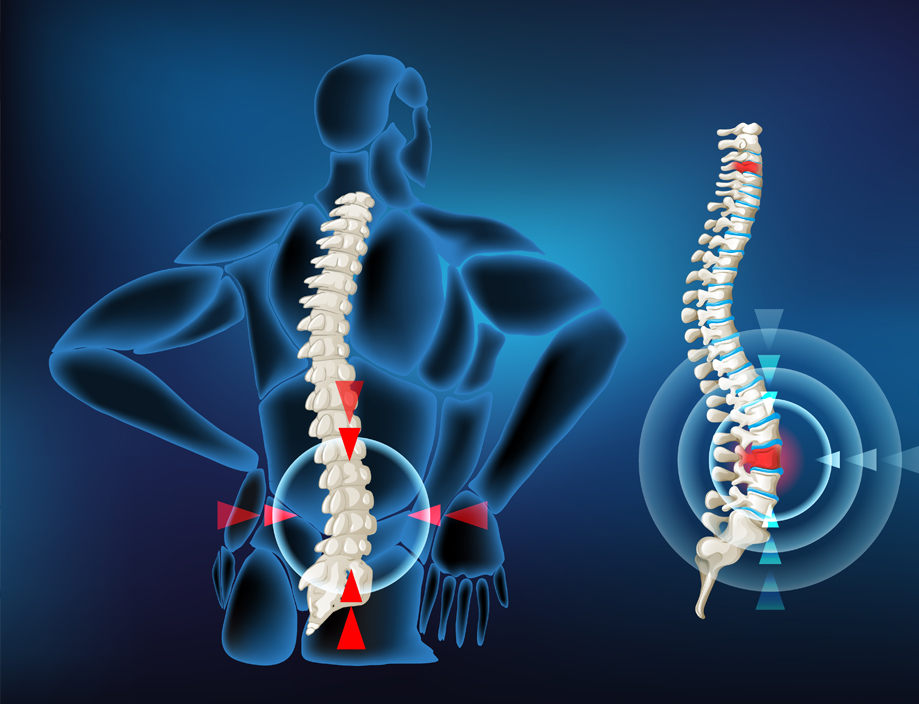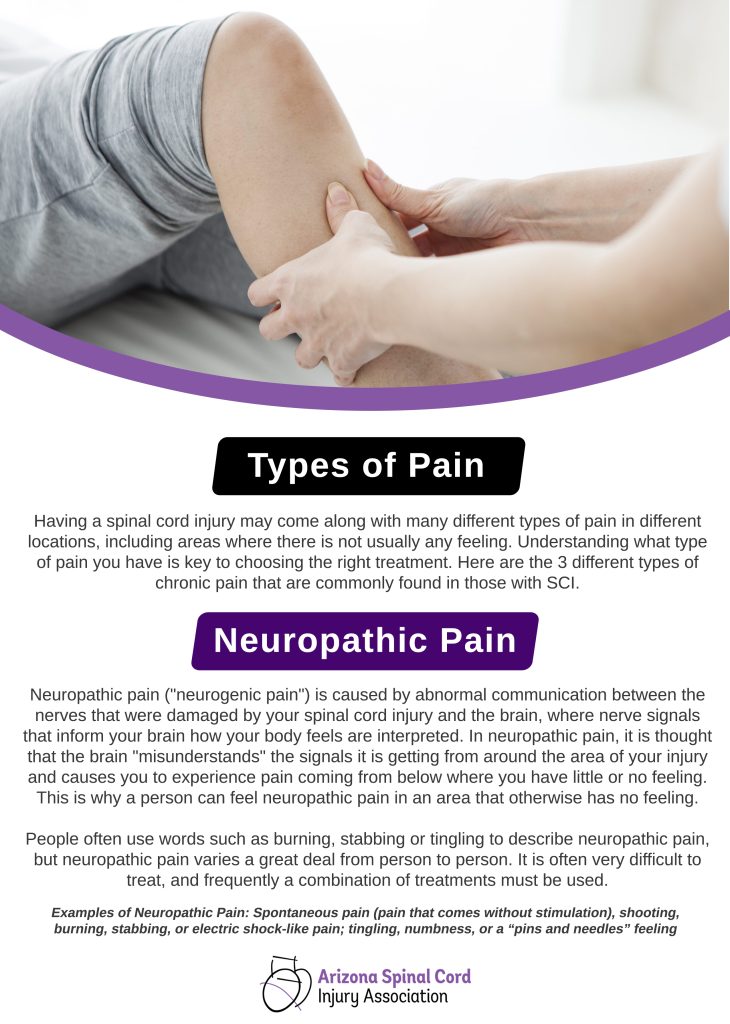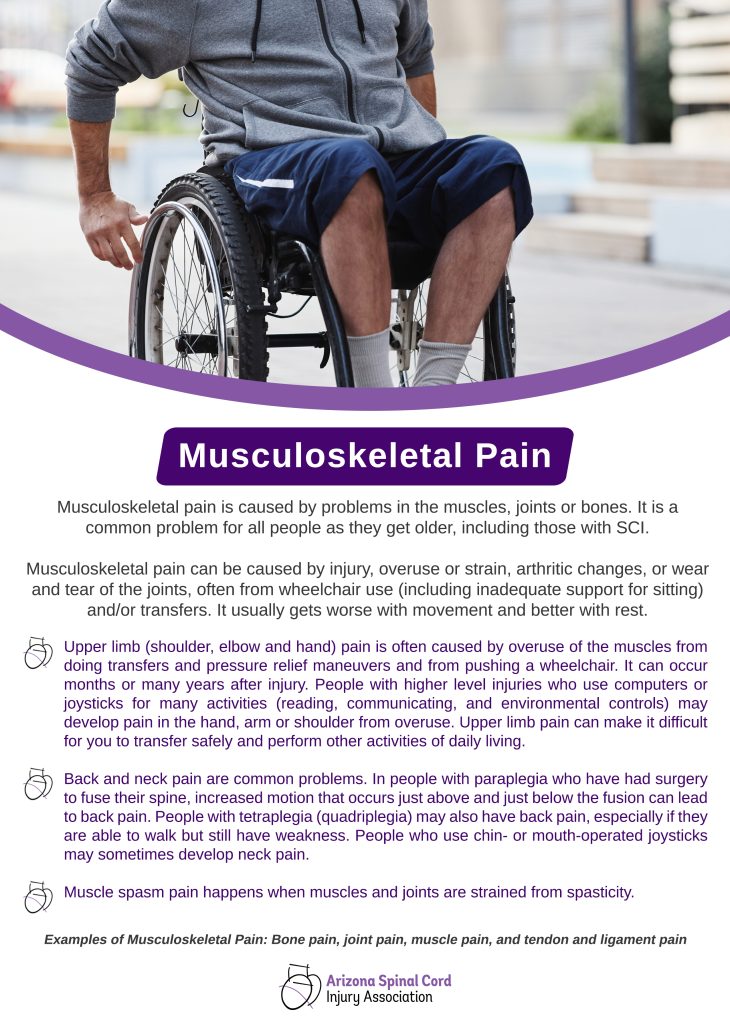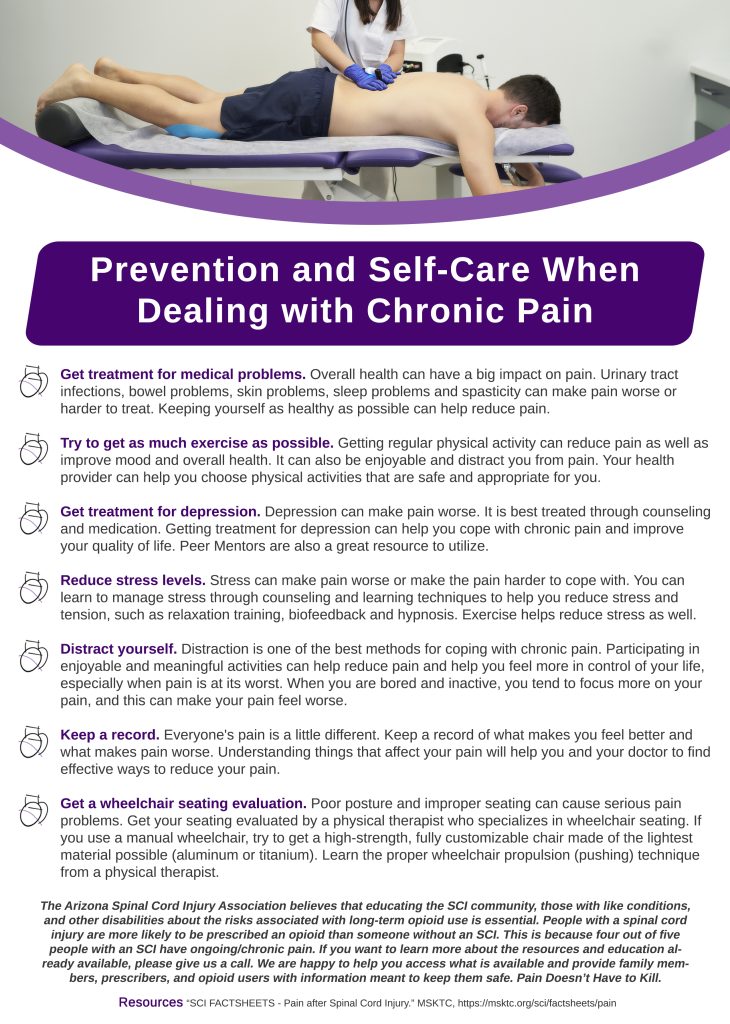Education
Education for Opioid Use Disorder (OUD) in the Disability Community
The AZSCIA believes that educating the SCI community, those with like conditions, and other disabilities about the risks associated with long-term opioid use is essential. People with a spinal cord injury are more likely to be prescribed an opioid than someone without an SCI. This is because four out of five people with an SCI have ongoing/chronic pain. Here, you will find up-to-date research and data provided by the Arizona Department of Health Services and other community advocates.
If you want to learn more about the resources and education already available, please give us a call. We are happy to help you access what is available and provide family members, prescribers, and opioid users with information meant to keep them safe. More education can be found in our Opioid Overdose Prevention Toolkit. Click here to read now.
"Did You Know?"
Disability and Opioid Use What You Need to Know Infographics

What's In Your Bottle?





Withdrawal Symptoms
Taking the big step of getting off opioids can be a very daunting task. Whether you are trying to get off of the opioids completely or planning on lessening your dose, you have the chance of experiencing withdrawal symptoms. Although slowly decreasing your dose will help reduce withdrawal symptoms more than going cold turkey. With having a spinal cord injury, these symptoms can possibly be more extreme/harder to manage.
If you are experiencing withdrawal symptoms, tell your provider and they may be able to give you short-term medicine to help control them.
Here is a list of withdrawal symptoms you may experience:
- Trouble sleeping or staying asleep
- Anxiety
- Loss of appetite
- Diarrhea
- Nausea and/or vomiting
- Runny nose
- Chills/Sweats
- Increased heart-rate/blood pressure
- Cramps in stomach
- Excess amount of saliva
- Fatigue
- Seizures
- Increased pain

Increased Pain Sensitivity

Here is a list of withdrawal symptoms you may experience:
A surprising side effect of opioid use, especially for individuals who have suffered a spinal cord injury, is increased pain sensitivity.
“Using opioids, especially at high doses for long periods, often makes people more sensitive to pain. This increased sensitivity is not just related to the specific pain someone is experiencing but to any pain they might experience. In many cases, taking a lower dose of opioid, changing to a different opioid, or even stopping the opioid (after gradually taking a lower and lower dose) altogether may decrease any increased pain sensitivity caused by opioid use (MSKTC, “SCI FactSheets- Opioids and Your Health” https://msktc.org/sci/factsheets/opioids-and-your-health).”
If you believe you are experiencing increased pain sensitivity while on opioids, talk to your health care provider to look at your options on adjusting your dose.
Types of Chronic Pain




